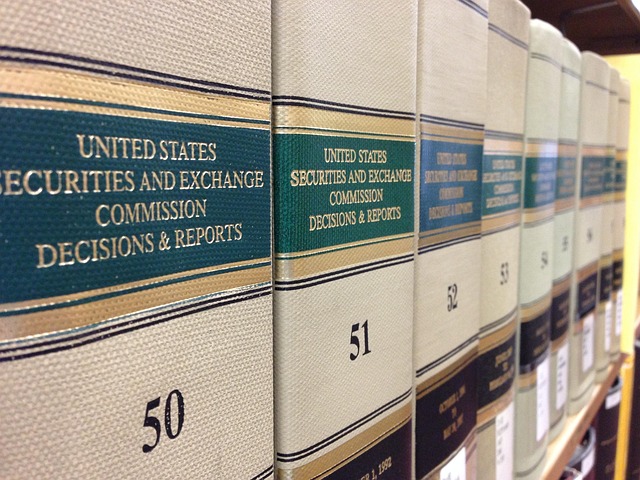Understanding Search and Seizure Rights in Criminal Law is crucial for navigating legal complexities, balancing public safety and individual privacy, and ensuring fair outcomes. The Fourth Amendment protects citizens from unreasonable searches, with protocols like reasonable suspicion and probable cause guiding law enforcement actions. These rights are especially vital in white-collar cases, where proper adherence can lead to charge dismissal. As technology advances and surveillance techniques evolve, the interpretation of Search and Seizure Rights becomes more complex, necessitating reform to protect marginalized communities and maintain justice.
In the intricate landscape of criminal law, understanding search and seizure procedures is paramount for both legal professionals and citizens alike. This article delves into the fundamental rights protected by the Fourth Amendment, exploring how it safeguards individuals from unreasonable searches. We’ll navigate modern challenges, including scenarios where law enforcement can conduct searches without warrants, and dissect crucial procedures ensuring legal compliance. Uncovering these complexities reveals the ongoing debates and controversial issues shaping search and seizure cases in contemporary criminal law.
- Understanding Search and Seizure: An Overview of Legal Rights
- The Fourth Amendment: Protecting Individuals from Unreasonable Searches
- When Law Enforcement Can Conduct a Search Without a Warrant
- Procedures for Conducting Legal Searches and Seizures
- Challenges and Controversial Issues in Modern Search and Seizure Cases
Understanding Search and Seizure: An Overview of Legal Rights

Understanding Search and Seizure Rights in Criminal Law is paramount for anyone navigating the complexities of legal proceedings. These rights are enshrined to protect individuals from arbitrary or unjustified intrusions into their privacy. When law enforcement officials conduct searches, whether of a person, vehicle, or property, they must adhere to strict protocols outlined in the Fourth Amendment of the U.S. Constitution. This ensures that any evidence collected is done so through legal means, safeguarding against potential abuses of power.
The process begins with reasonable suspicion, where officers must have a legitimate reason to believe an individual has engaged in criminal activity. From there, they can conduct searches and seize items only if certain criteria are met. These include obtaining search warrants based on probable cause, ensuring the warrant specifies the exact location and items to be searched, and limiting the scope of the investigation to prevent unwarranted expansion. Upholding these rights is crucial for maintaining fairness within the criminal justice system, ensuring that the interests of both individuals and philanthropic and political communities are protected, and ultimately leading to a more just society where the complete dismissal of all charges can be a realistic outcome in cases where violations occur.
The Fourth Amendment: Protecting Individuals from Unreasonable Searches

The Fourth Amendment to the U.S. Constitution is a cornerstone of criminal law, safeguarding individuals from unreasonable searches and seizures. It guarantees that citizens have a reasonable expectation of privacy, which must be respected by law enforcement officials during investigations. This amendment is pivotal in balancing public safety and individual freedoms, ensuring that the respective business of law enforcement does not infringe upon private lives without due cause.
Understanding Search and Seizure Rights in Criminal Law is essential for all stages of the investigative and enforcement process. Attorneys and legal professionals must navigate these rights to protect their clients’ interests while upholding the integrity of the justice system. By adhering to constitutional guidelines, law enforcement can maintain public trust and ensure that evidence collected is admissible in court, ultimately leading to fair and just outcomes.
When Law Enforcement Can Conduct a Search Without a Warrant

In criminal law, understanding when law enforcement can conduct a search without a warrant is crucial for balancing public safety and individual privacy rights. The Fourth Amendment protects citizens from unreasonable searches and seizures, but there are notable exceptions that allow officers to act swiftly in certain circumstances. These include situations where there is probable cause to believe that evidence of a crime will be destroyed or when exigent circumstances exist, such as hot pursuit or the need to prevent escape.
For instance, during a white-collar defense investigation, law enforcement might encounter scenarios demanding immediate action. If officers have reasonable grounds to suspect that crucial evidence related to financial crimes is about to be removed from a respective business premises, they can conduct a warrantless search to secure it. Achieving extraordinary results in such cases often hinges on the admissibility of evidence gathered during these searches, making it a critical area for legal strategists to navigate.
Procedures for Conducting Legal Searches and Seizures

In criminal law, procedures for conducting legal searches and seizures are pivotal to ensuring justice and protecting individual rights. These processes are meticulously outlined to safeguard citizens from unreasonable intrusions while empowering law enforcement to gather evidence vital for investigations and prosecutions. The Fourth Amendment of the U.S. Constitution guarantees the right against unlawful searches and seizures, establishing a framework that balances public safety with personal liberty.
Legal searches and seizures require specific protocols, including obtaining search warrants based on probable cause, conducting reasonable and targeted inquiries, and adhering to strict procedural guidelines. In white-collar defense cases, these procedures become even more critical as they often involve intricate financial records and digital evidence. Achieving extraordinary results in such cases demands a thorough understanding of Search and Seizure Rights in Criminal Law, aiming for the complete dismissal of all charges by preserving admissible evidence and excluding any illegally obtained data.
Challenges and Controversial Issues in Modern Search and Seizure Cases

Modern search and seizure cases present a complex web of legal challenges, reflecting the evolving nature of criminal law. One prominent issue is the delicate balance between protecting citizens’ privacy and ensuring public safety. With advancements in technology, law enforcement agencies often employ sophisticated surveillance techniques, raising concerns about potential overreach. This is particularly evident in cases involving digital evidence, where the Fourth Amendment’s protection against unreasonable searches and seizures is frequently tested. The interpretation of “reasonable suspicion” has been a point of contention, especially with the rise of data-driven policing strategies.
Furthermore, the impact of these practices on marginalized communities, including racial and ethnic minorities, has sparked widespread debate. Advocates argue that search and seizure procedures disproportionately affect low-income neighborhoods and have led to an unprecedented track record of racial disparities in enforcement. This has prompted calls for reform, particularly within the philanthropic and political communities, who advocate for more transparent and equitable policing practices. As white-collar and economic crimes gain prominence, the legal boundaries around search and seizure rights continue to evolve, demanding close scrutiny to safeguard individual liberties without compromising criminal justice objectives.
Understanding search and seizure procedures is paramount in criminal law, as it safeguards individuals’ Fourth Amendment rights while enabling effective law enforcement. This article has provided an overview of legal principles, highlighting critical aspects such as warrant requirements, procedural steps, and contemporary challenges. By navigating these complex issues, legal professionals can ensure fair practices, protect citizens’ freedoms, and foster a balanced approach to criminal justice, ensuring that Search and Seizure Rights in Criminal Law remain a cornerstone of a just society.






